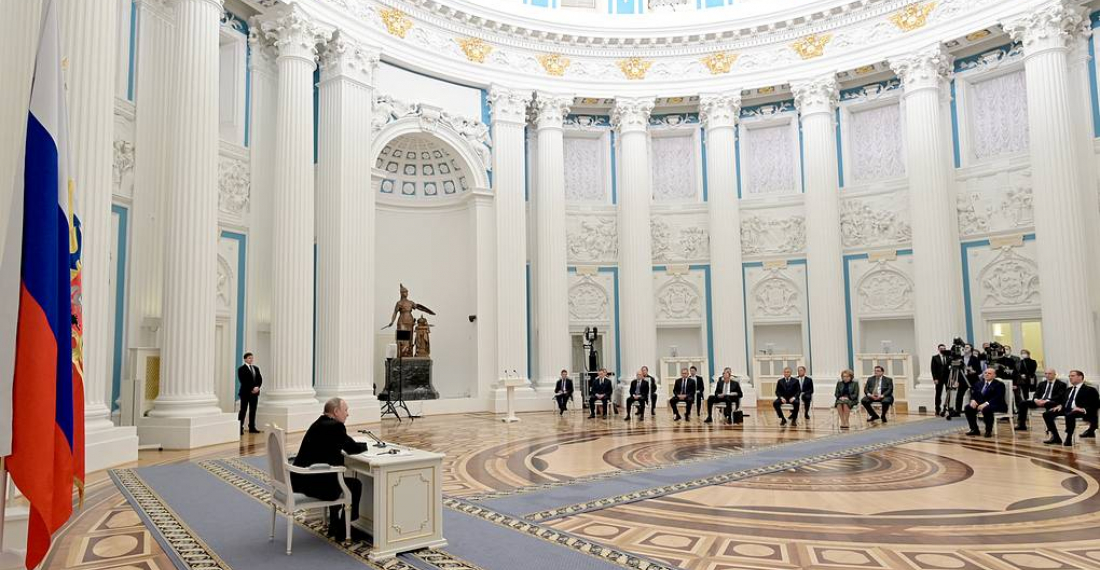Russia has recognised the breakaway Ukrainian regions of Donetsk and Lugansk as independent countries and signed friendship and co-operation agreements with them.
Russian president Vladimir Putin in a long and agitated television address to the nation appeared to question the very existence of the Ukrainian state, lambasted the west for its policy towards Russia, accused the Ukrainian government of genocide in the Donbass region and announced the recognition of the two separatist entities.
Russian TV then showed Putin entering another room in the Kremlin where he signed the act of recognition in the presence of the two self-declared presidents of the separatist entities. They then signed the friendship and co-operation agreements, whose text has not yet been published, but which is likely to justify the entry of the Russian military in the Donbass.
Earlier, Putin held a special session of the Russian Security Council where the steps in Ukraine were discussed.
___________
The Russian president will address the nation this evening. Earlier, at an expanded meeting of the Russian Security Council to discuss the situation in Ukraine, president Vladimir Putin said a decision will be taken today on the recognition of the Ukrainian breakaway regions of Lugansk and Donetsk.
Updated at 16.30 CET
At an expanded meeting of the Russian Security Council to discuss the situation in Ukraine, president Vladimir Putin said a decision will be taken today on the recognition of the Ukrainian breakaway regions of Lugansk and Donetsk. During the meeting various members of the Council spoke in favour of the recognition.
Updated at 1515 CET on 21 February 2022
The Russian news agency TASS is reporting that Russian President Vladimir Putin on Monday at a meeting of the Security Council (SC) of the Russian Federation said that he intends to listen to the opinion of the members of the Security Council on the appeals of the heads of the proclaimed Donetsk and Lugansk people's republics, as well as the State Duma on recognizing the independence of these entities.
"The purpose of our today's meeting is to listen to our colleagues and determine our further steps in this direction, I mean both the appeal of the leaders of the Donetsk People's Republic and the Lugansk People's Republic to Russia with a request to recognize their sovereignty, and the decision of the State Duma of the Russian Federation on this same topic with a call to the head of state to do this and recognize the independence and sovereignty of the Donetsk People's Republic and the Lugansk People's Republic," Putin said.
Russia initially did everything to peacefully resolve the contradictions between Kiev and Donbass, the president said. The course of events shows that the current Ukrainian authorities are not going to implement the Minsk agreements, Putin said. The coup d'etat in Ukraine in 2014 was armed and bloody, the Russian president said.
_______________________________________________
Russian president Vladimir Putin has convened an extraordinary meeting of the Russian National Security Council on Monday.
A Kremlin spokesperson said that the meeting will be attended by other persons, except for the regular members of the Council. No details are available.
This story will be updated throughout the day.






